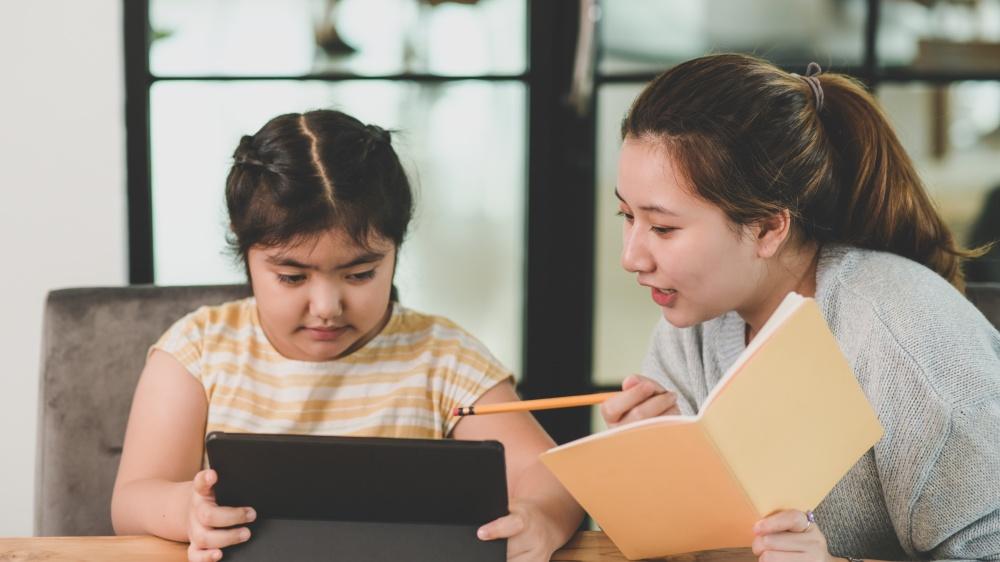During the pandemic, many parents became concerned about their child’s academic performance, suffering in the absence of a formal classroom setting. This may have led them to either seek out tutors or take on a teaching role at home. Although tutoring has long been a staple of extra-curricular education, the traditional pedagogy of tutoring can have an adverse effect on the child’s intellectual and emotional development – especially when the parent is playing teacher. Here, we outline where home tuition in Singapore can conflict with parenting styles and provide some alternative options for dedicated parents.
1. Ineffective learning style
Traditional tuition in Singapore relies on a pedagogy that emphasises rote learning, where terms are repeated and memorised by the child. Flashcards and repetition are examples of rote learning. This isn’t a wholly bad tactic; it can be an effective way to quickly memorise terms for a test, for example. But when it comes to developing critical thinking skills in a dynamic learning environment, rote learning simply doesn’t hold up. Some of the drawbacks of rote learning include:
- Doesn’t allow for a deeper understanding of a subject
- Doesn’t encourage the use of social skills
- No connection between new and previous knowledge
- May result in a wrong impression or understanding of a concept
Contrast rote learning with meaningful learning, or a holistic approach, which encourages children to develop critical thinking skills and the capacity to make links among concepts. This pedagogical approach values understanding over memorisation, which helps develop essential academic and interpersonal skills at key stages. As parents, we want to ensure our children are learning the right way – the methods we adopt based on our own experiences may not be very effective today.
2. Pressure from parents
Parents have to balance a delicate line between caring too little and too much for their child’s academic achievements. When parents overemphasise the value of academics, the child may be placed under huge pressure, which can increase the chances of developing emotional disorders, eating disorders, and social withdrawal that continues into adulthood.
Additionally, children tend to behave worst with those they’re the most comfortable around, which is why your child may be an angel in the classroom but defiant at home. When this is combined with teaching, parents and children can butt heads in a way that is not conducive to effective learning. This could also damage the parent/child relationship.
Our key parenting tip: keep academic teaching and parenting separate. By simplifying the role of the parent, you can encourage your child to achieve highly without taking on personal responsibility for their success. And, in all cases, ensure your child understands that your love for them isn’t related to academic achievements.
3. Detracts from family time
When the parent takes on the dual role of parent-teacher, they are fulfilling a function often divided between two or more people. This means that the child spends more time with the parent, but this is not quality time as often the parent and child are both stressed and in conflict about learning objectives. By outsourcing your child’s education to a holistic student care centre or by pursuing after school enrichment classes, you can spend your family time bonding rather than focusing on the day’s schoolwork.
This is a huge relief to the parent and child: with your time freed up, you can enjoy creative activities with your child that strengthen your relationship, rather than alienating them by playing schoolmaster. For the child, they see the home as a place to rest and be with their family instead of it being an extension of the classroom. All in all, this helps them to feel more open, trusting, and communicative at home.
Why choose MindSpace?
MindSpace is a student care centre that employs a holistic approach which encourages children to develop fundamental academic and social skills. We integrate research-based pedagogy into our classrooms which eliminates the need for rote-learning style tutoring and equips your child with the skills to deeply understand what they learn in the classroom.
Our approach, the Optimal Flow MethodTM, provides learning techniques that your child can carry with them into adulthood. Alongside this research-based learning, children in our after school community-based enrichment classes are provided with nutritious meals and engaged Subject Specialist Coaches who contribute to the learning process.
By choosing MindSpace, you are providing your child with a modern pedagogical structure which frees you up to spend quality family time together whilst providing academic benefit. Get in touch with our team today or book a tour to see our research-driven approach in action.
